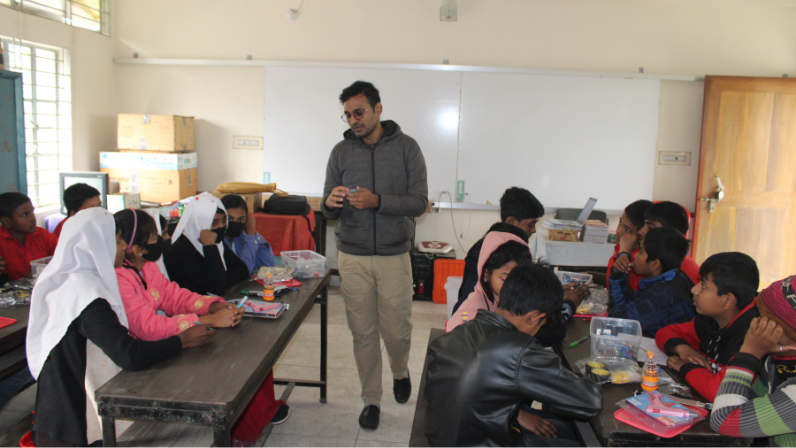On the 21st of January 2024, Robotics-3 session unfolded at Shaheed Kamel Model High School, Tala, Satkhira, as part of the STEM & ICT Skills for the Girls of Coastal Area (SISGCA) project. This initiative, generously funded by the Malala Fund in collaboration with BdOSN, aimed to bridge the educational gender gap and empower females of coastal areas. 16 females and 15 males, a total of 31 students from classes 6 to 8, participated actively in these sessions.
The main objective of these sessions was to ignite a passion for science and information technology among the students, fostering a conducive environment for learning and innovation. Acknowledging the diminishing interest in education and the unequal access to science and technology education for girls in coastal areas, the SISGCA project aims to eliminate obstacles preventing girls in villages from pursuing higher education.
Mahbub Ul Islam Khan Nibir, the Project Coordinator for SISGCA, initiated the session with a warm welcome note. The robotics segment, led by Mishal Islam, Academic Coordinator of Bangladesh Robot Olympiad, and Abul Hasan and Md Shohanur Islam Sobuj, Robotics Mentors, proved to be a transformative experience for the participating students.
This robotics session offered students an engaging, hands-on introduction to the components and operation of line-following robots. Through active participation in practical activities, they gained a solid understanding of the underlying mechanisms and functionality. Additionally, students were introduced to the Arduino board and acquired the foundational coding skills necessary to control LEDs. Their exposure to the Arduino board and acquisition of basic coding skills paves the way for future exploration and independent robot creation.
The session was strategically designed this session to establish a robust foundation in key robotics concepts, sparking keen interest among the participants in understanding how line-following robots work and the principles governing their construction. The exposure to the Arduino board and acquiring basic coding skills have paved the way for these students to explore future possibilities and independently create their robots.
The impact of this Robotics-3 session will undoubtedly contribute to breaking gender barriers and fostering a new generation of skilled and confident female learners in science and technology. The future is brighter as these girls take their first steps towards becoming leaders in STEM.

